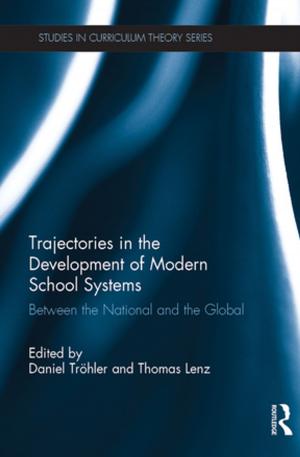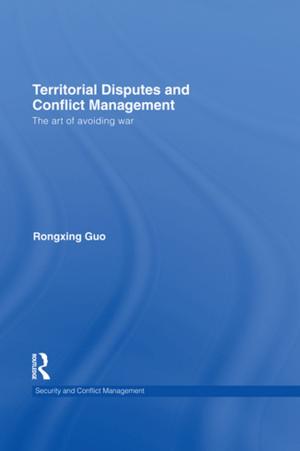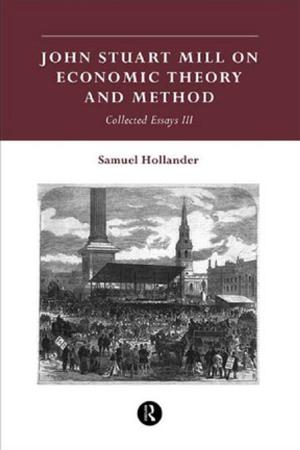Education - An Anatomy of the Discipline
Rescuing the university project?
Nonfiction, Reference & Language, Education & Teaching, Educational Theory, Educational Reform| Author: | John Furlong | ISBN: | 9781136157325 |
| Publisher: | Taylor and Francis | Publication: | September 2, 2013 |
| Imprint: | Routledge | Language: | English |
| Author: | John Furlong |
| ISBN: | 9781136157325 |
| Publisher: | Taylor and Francis |
| Publication: | September 2, 2013 |
| Imprint: | Routledge |
| Language: | English |
Education – An Anatomy of the Discipline focuses on the development of the discipline of education, how it is understood and practised in contemporary universities, and the potential threats to its future. As the author, John Furlong argues, disciplines are not only intellectually coherent fields of study; they also have a political life, they are argued for, supported, challenged and debated. Nowhere is this more true than in the discipline of education.
In this authoritative text, Furlong describes the history as well as the current state of the discipline of education in universities. He also explores the range of national and global changes that have helped to shape the discipline in recent years. Education’s final ‘arrival’ in the university sector coincided with major changes in universities themselves. Today, universities are very diverse institutions: they no longer have a sense of essential purpose and have largely accepted their loss of autonomy, especially in education where government intervention is particularly strong. If education is now fully integrated into universities, then, like the system as a whole, it urgently needs to find a voice, set out a vision for itself, and state what its purpose should be within a university in the modern world.
The book therefore brings together four vitally important topics:
-the changing nature of the university
-the academic and scholarly study of education as a field
-the professional education and training of teachers
-the nature and organisation of educational research.
Education – An Anatomy of the Discipline will occupy a central place in contemporary literature about education; although based on evidence from British universities, its implications are important across the world. The book will be invaluable reading for all professionals working in university departments and faculties of education as well as those with an interest in the changing role of the university in contemporary society.
Education – An Anatomy of the Discipline focuses on the development of the discipline of education, how it is understood and practised in contemporary universities, and the potential threats to its future. As the author, John Furlong argues, disciplines are not only intellectually coherent fields of study; they also have a political life, they are argued for, supported, challenged and debated. Nowhere is this more true than in the discipline of education.
In this authoritative text, Furlong describes the history as well as the current state of the discipline of education in universities. He also explores the range of national and global changes that have helped to shape the discipline in recent years. Education’s final ‘arrival’ in the university sector coincided with major changes in universities themselves. Today, universities are very diverse institutions: they no longer have a sense of essential purpose and have largely accepted their loss of autonomy, especially in education where government intervention is particularly strong. If education is now fully integrated into universities, then, like the system as a whole, it urgently needs to find a voice, set out a vision for itself, and state what its purpose should be within a university in the modern world.
The book therefore brings together four vitally important topics:
-the changing nature of the university
-the academic and scholarly study of education as a field
-the professional education and training of teachers
-the nature and organisation of educational research.
Education – An Anatomy of the Discipline will occupy a central place in contemporary literature about education; although based on evidence from British universities, its implications are important across the world. The book will be invaluable reading for all professionals working in university departments and faculties of education as well as those with an interest in the changing role of the university in contemporary society.















